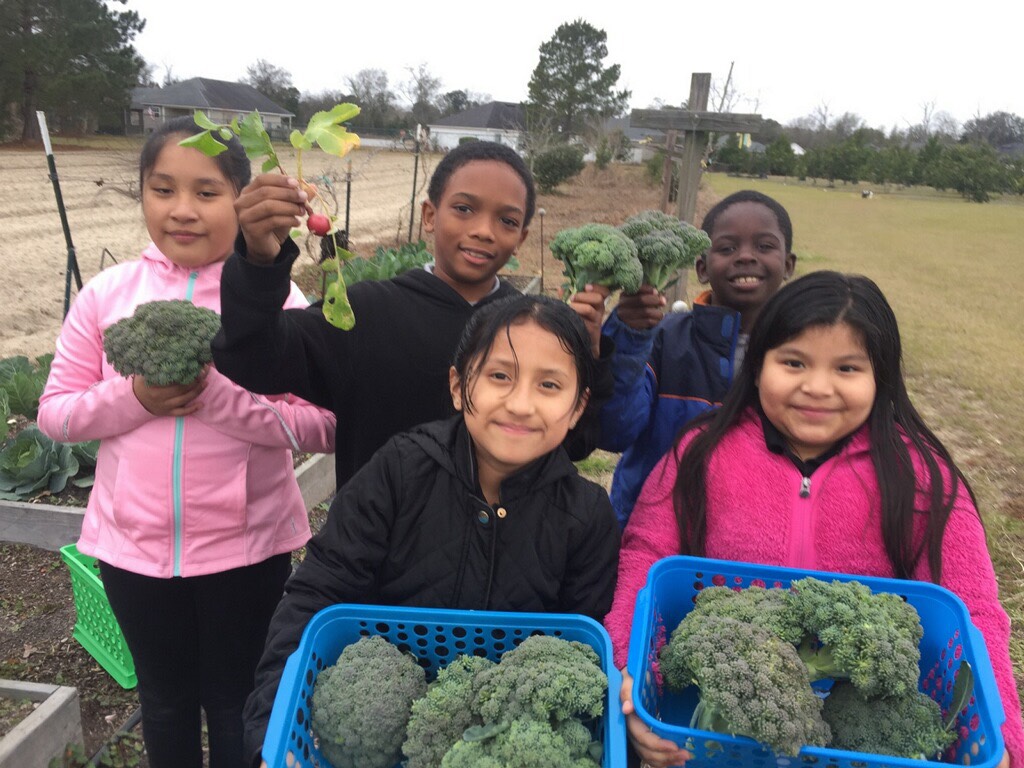School Gardens
Teamwork is the best approach to establishing and maintaining a school garden. The entire school, and even the community, can benefit from a school garden. Whether the garden provides tasty foods to add to school menus, educational opportunities for children or a place of peace and beauty, there are benefits for everyone.
Gardens create dynamic, ever-changing, natural environments suitable for learning.
Experience with a school garden can connect the student to healthy eating and food systems, fractions and measuring, definition of a whole food and parts of plants, and healthy food preparation. See USDA's School Garden Fact Sheet for information and ideas on using gardens to grow healthy habits in cafeterias, classrooms, and communities.
Resources
For information about food safety in school gardens, please refer to the Georgia Department of Education’s Farm to School Food Safety page.
School Garden Q&As: Memo SP 32-2009: This memo from the USDA, Food and Nutrition Service addresses questions regarding the operation of a school garden and use of nonprofit school food service account funds for starting and maintaining a school garden.
Farm to School and School Garden Expenses: Memo SP 06-2015: This memo from the USDA, Food and Nutrition Service includes questions and answers on specific scenarios related to the use of funds from the nonprofit school food service account to cover expenditures related to farm to school activities and school gardens.
